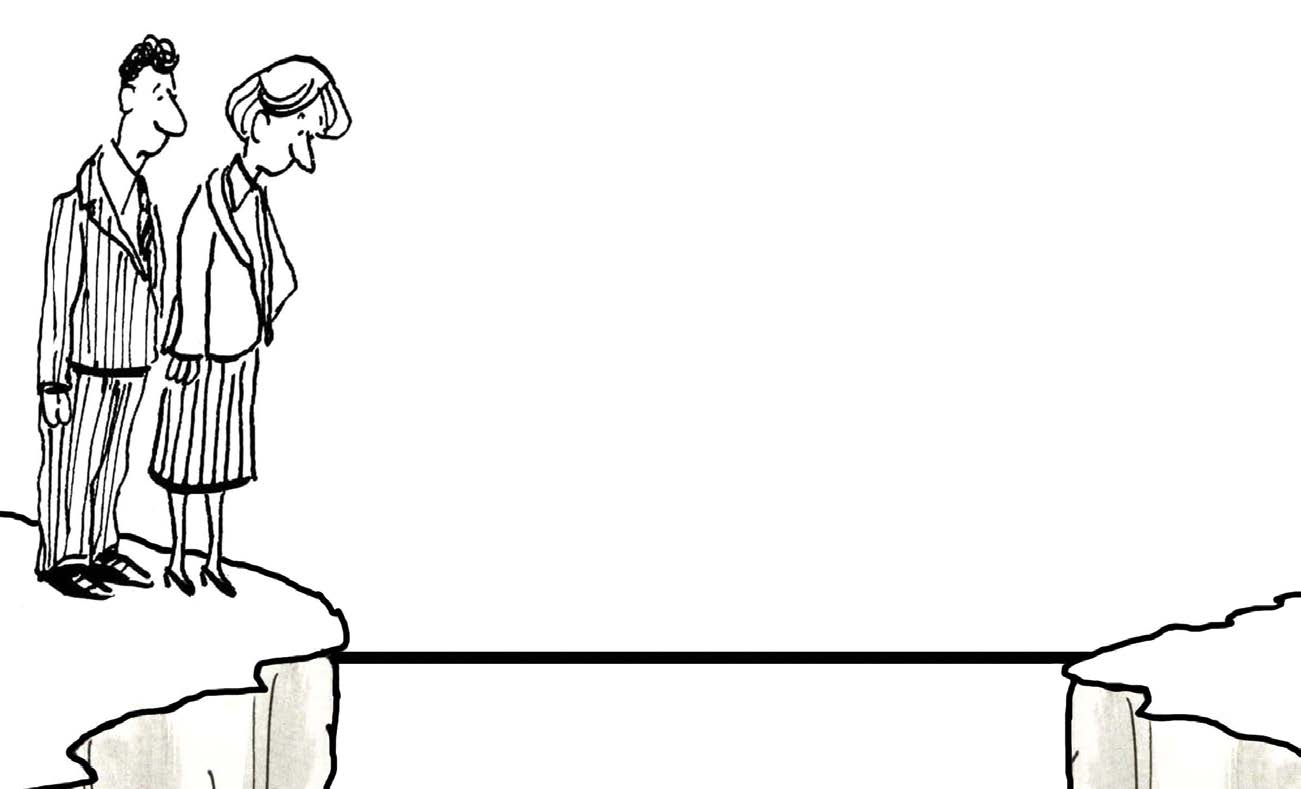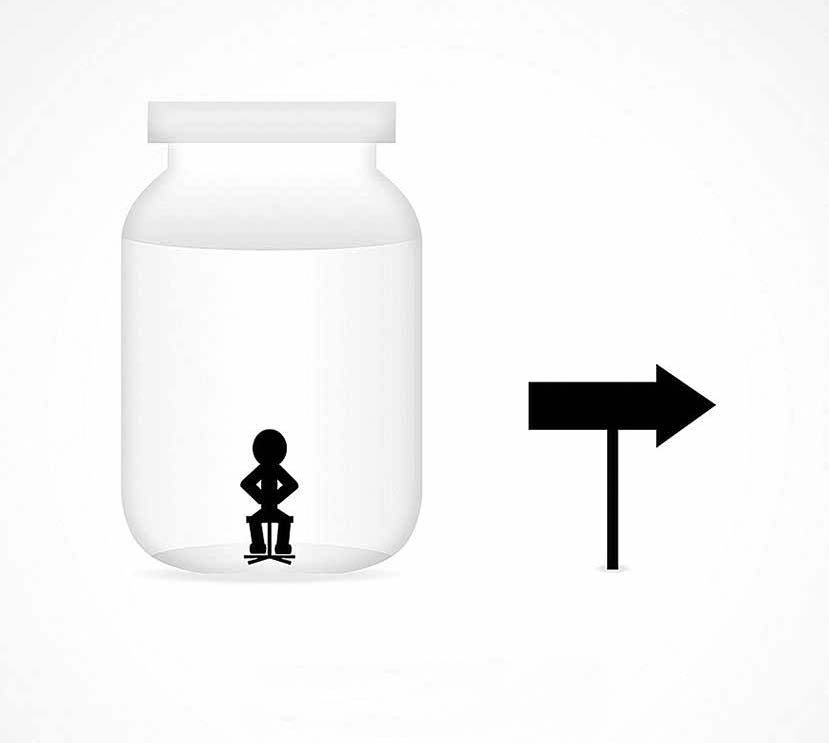


Any change in life forces a personal change on us – we assume a new role. This seems trivial, but when change is serious, we need to become a person that we have never been before. This requires learning new skills, attitudes, beliefs and behaviours. Change, even if it is for the better, is associated with a high psychological burden.
In the well-known Holmes and Rahe stress scale questionnaire, all stressors are related to changes in the personal or professional life. Even the changes that the majority of us would consider positive, such as getting a new job, the arrival of a new family member, or even a vacation, score high on a 43-point scale. Why is that so?
Suppose that you have just been promoted at work and begin to manage a group of employees, who only recently were your workmates.
Apparently, not much has changed – after all, it’s the same work and the same colleagues, but the vast majority of people, when placed in such a situation without any prior preparation, feel enormous discomfort and stress.
The first reason is the lack of competence or experience in dealing with new challenges. In this case, a whole range of skills is at play, involving human resources management, project management, task delegating, monitoring performance motivating, etc. Unfortunately, such situations are quite common. People still believe that the so-called soft skills do not need to be learned, that they “will manage somehow”. It’s like putting someone in a cockpit and expecting them to fly a plane. Without proper preparation and training, this task is simply back-breaking.
Secondly, stress is associated with the change of how we perceive ourselves in the new role and how others perceive us. It’s like one day you look in the mirror and see the reflection of a stranger’s face. A lot has changed: what people require from you, their attitude to you, your relations with your workmates. This is obviously not so clear and we are hardly ever aware of it. Most often, we tend to attribute stress to too many duties or to other problems at work.

The first problem is relatively easy to solve: appropriate training or guidance by an experienced person might do the trick. However, assuming a new role and changing your self-image is more difficult. To deal with this, you require not only new skills, but also some work with your attitudes and beliefs. This step may prove critical to your well-being and performance.
Change is a lot easier when it comes naturally: promotion, changing a job or starting your own business. The same is true about change in private life – when you become a parent or a spouse. Each of these changes requires us to accept a new role, to change our self-image (self-perception), and to acquire new skills. However, in these cases, we often have no choice. On the one hand, the situation is stressful, but on the other hand – it can be easier to handle, especially when change is for the better – we simply cannot back out. Thus, a lack of perseverance is no longer an obstacle.
A change that we originate ourselves is much more difficult. Such change comes in all shapes and sizes: New Year’s resolutions, repentance, a desire to improve, inspiration with someone else’s success and a desire to achieve your own – here, the situation is somewhat different. When making a decision to change something, we should think about the new skills that we will need in order to succeed, but our new self-image – how we are going to perceive ourselves – also matters. Homeostasis comes as a hindrance here. In the case of personal change, we experience homeostasis on several levels – physical, mental and social one. What is homeostasis?
Suppose that, after years of sedentary life, you start regular exercise. The plan is simple – to get up an hour earlier than always and instead of driving to work, jog a few kilometres. After a few hundred metres, though, your untrained body refuses to cooperate: heart palpitations, shortness of breath, weak muscles – these are the elements of physical homeostasis. These are the signals that the body sends us to communicate something important: “Something unusual is going on, something bad, whatever you are doing – stop it immediately!” Our body does not understand the changes for the better; it wants the things that it knows and likes. A moment later, negative thoughts appear: “I don’t want to jog, it’s not for me, maybe I’ll start next month, when the weather’s better”, etc. These are the signs of psychological homeostasis: procrastination, looking for excuses or rationalizing why we’d better give up. Let us assume, though, that we are fit and finish the jogging. We come to work earlier than usual, full of energy and boast about our new resolution.

George Leonard, the author of mastery, suggests
5 ways to deal with change:
- Be aware of the way homeostasis works. it is a universal phenomenon, so it will get you sooner or later. The most important thing is to recognize it and react accordingly.
- Be willing to negotiate with your resistance to change. The point is not to force yourself because it only increases your resistance. But do not let it go, either. The key is to find the „golden mean” – to know how much you can achieve now, and when you should retreat to „regain your strength”.
- Develop a support system. if there are people around you who support you, you are already half way through, if not – it is worth finding someone who will share your successes and will encourage you in hard times. Positive thinking is a secret here – it is a very simple, but effective mechanism that supports achieving your goals. it is used by olympic athletes and by marines operating under extremely tough conditions
- Follow a regular practice. Regardless of what you want to achieve, regular activity and continuous progress monitoring are essential elements of each change.
- Dedicate yourself to lifelong learning. There is nothing at the end of the path. no wealth, no peace, no fame. each path ends so that a new one could begin, with the journey itself being the goal.

How will the workmates react? They could congratulate us and wish us good luck – then we have the support of the environment. But they are more likely to treat us condescendingly – this is an example of social homeostasis. A lack of acceptance of change and the desire to preserve the status quo manifest themselves at all levels. How to deal with it?
Keep in mind one very important thing – change is a process extended in time: it will not happen overnight. it is not an act of will, either – this means that our conscious decision is not enough to implement it: “Tomorrow I’ll start exercising regularly, I will be less irritable, I’ll be a better parent, boss or partner”. Such resolutions are only wishful thinking, if they are not accompanied with large-scale actions involving the acquisition of new skills, change of attitudes or beliefs. ■








No comments so far.
Be first to leave comment below.